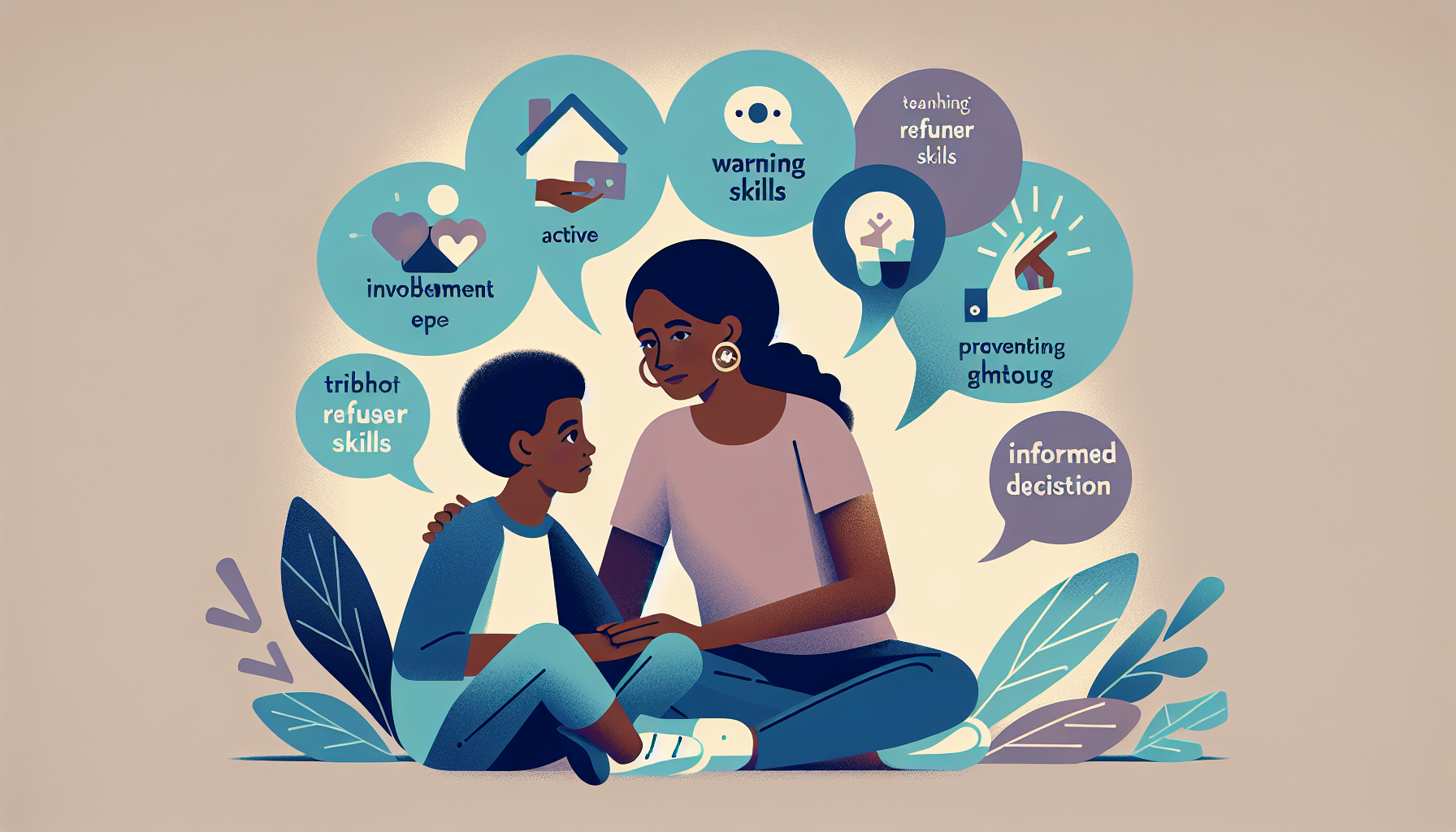“`html
How to Talk to Your Child About Drugs
Introduction
Talking to your child about drugs can feel like a daunting task, but it’s one of the most important conversations you can have as a parent. Open communication about substance abuse is key to building trust and helping your child make informed decisions. In this article, we’ll provide practical parenting tips and strategies to talk about drugs in a way that feels natural, effective, and supportive.
Research confirms that children who have honest, ongoing conversations with their parents about drugs are less likely to experiment with substances. By addressing this sensitive topic, you’re taking an essential step toward substance abuse prevention and fostering a safe environment where your child feels empowered to seek guidance.
Main Points
Why Talking About Drugs Is Crucial
Children today are exposed to information about drugs at an early age—whether through friends, media, or social platforms. If you don’t address the topic proactively, misinformation can fill the gap. Open communication helps you:
- Provide accurate information: Ensure your child understands the risks associated with drug use.
- Build trust: When you’re open about tough subjects, your child is more likely to approach you with questions or concerns.
- Encourage critical thinking: Help your child analyze peer pressure and make independent decisions.
Understanding Your Child’s Perspective
Before diving into the conversation, it’s essential to consider your child’s age, personality, and current knowledge about drugs. Tailoring your approach based on their developmental stage ensures your message resonates.
- Young children: Use simple language and focus on safety. For example, explain that drugs can harm their body and should only be taken if prescribed by a doctor.
- Pre-teens: Pre-teens are naturally curious and may have heard about drugs from friends or media. Address their questions honestly and provide factual information.
- Teenagers: Teenagers value autonomy and may resist direct advice. Instead, engage them in discussions that allow them to express their opinions and concerns.
The Role of Cognitive-Behavioral Therapy Principles
Incorporating principles of cognitive-behavioral therapy (CBT) can enhance your communication. CBT emphasizes understanding thoughts, feelings, and behaviors—skills that are invaluable when discussing drugs with your child.
- Foster a sense of safety: Create a non-judgmental space where your child feels comfortable sharing their thoughts.
- Encourage autonomy: Allow your child to ask questions and form their own opinions, guiding them with evidence-based information.
- Promote self-expression: Validate their feelings and experiences, even if they differ from your own perspective.
Signs Your Child May Be Struggling
While prevention is the goal, it’s also important to recognize signs that your child might already be experimenting with drugs. Warning signs include:
- Sudden changes in behavior or mood
- Decline in academic performance
- Loss of interest in hobbies or activities
- Unexplained health issues like frequent headaches or nausea
- Secretive behavior or new peer groups
If you notice these changes, approach your child with empathy and curiosity. Avoid accusations, as they can shut down communication. Instead, express your concern and willingness to support them.
Practical Recommendations
1. Start the Conversation Early
The earlier you begin discussing drugs, the easier it becomes to build a foundation of trust and understanding. Use everyday moments—like a news story or a scene in a TV show—as natural conversation starters.
2. Be Honest and Fact-Based
Children respect honesty. Share factual information about the effects of drugs on the brain and body. Avoid fear-based tactics, as they can backfire by making kids feel mistrustful or rebellious.
3. Listen More Than You Speak
Effective communication is a two-way street. Encourage your child to share their thoughts, experiences, and questions about drugs. Listening without judgment shows that you value their perspective.
4. Teach Refusal Skills
Equip your child with practical strategies to resist peer pressure. Role-play scenarios where they may be offered drugs, and brainstorm confident ways to say no, such as:
- “No thanks, I’m not interested.”
- “I have to stay healthy for sports.”
- “I’d rather not get in trouble.”
5. Be a Role Model
Your actions speak louder than words. Demonstrate healthy coping mechanisms for stress and avoid substance misuse in your own life. Children are more likely to follow your example than your advice.
6. Stay Involved in Their Lives
Building a strong parent-child relationship reduces the likelihood of substance abuse. Show interest in their hobbies, meet their friends, and maintain open lines of communication.
7. Use Resources
If you need support, don’t hesitate to seek help. Organizations like Child Mind Institute provide valuable resources on parenting and substance abuse prevention. Connecting with professionals can also equip you with tools to navigate difficult conversations.
Conclusion
Talking to your child about drugs is an ongoing process, not a one-time event. By fostering open communication, providing accurate information, and modeling healthy behaviors, you can guide your child toward making safe and informed choices. Remember, the goal isn’t just to prevent substance abuse—it’s to build a relationship of trust and understanding that lasts a lifetime.
Now that you have these parenting tips, take the first step today. Start the conversation, listen with an open heart, and empower your child to navigate life’s challenges with confidence.
“`

